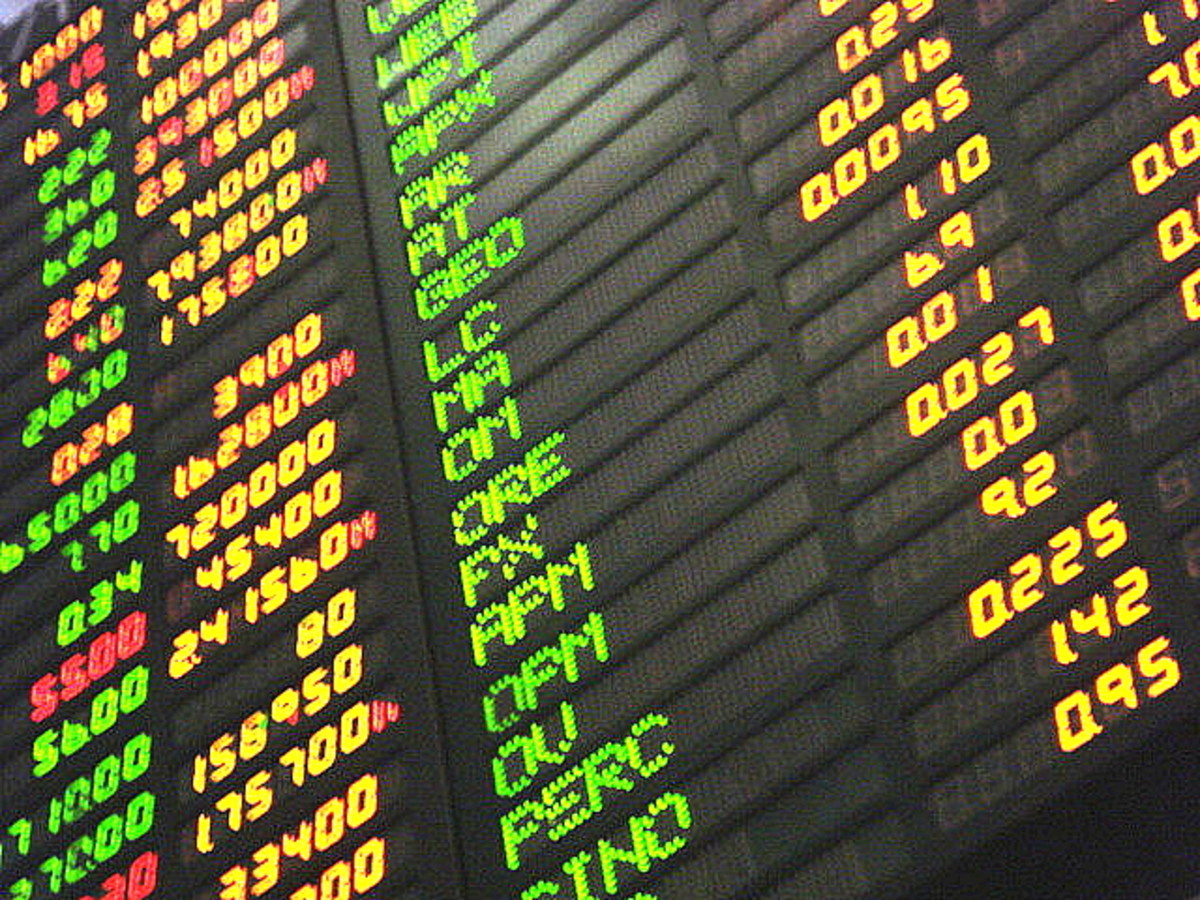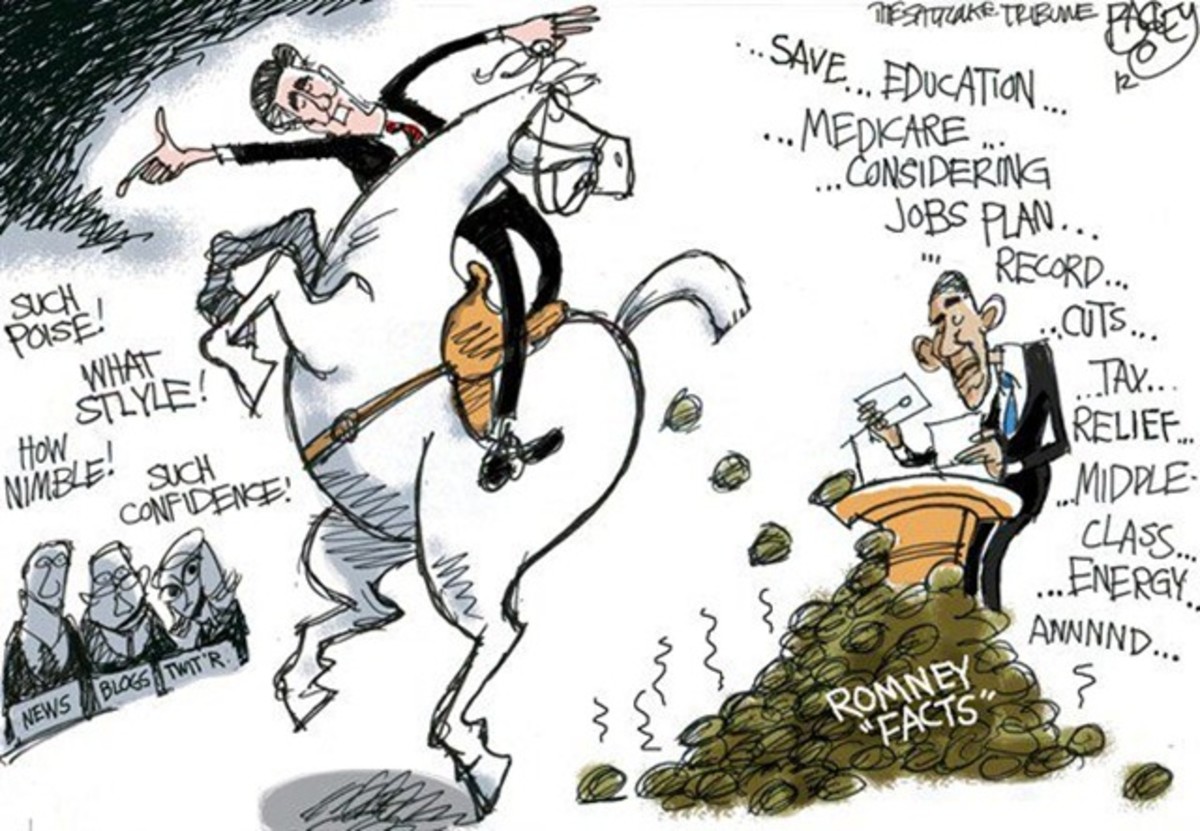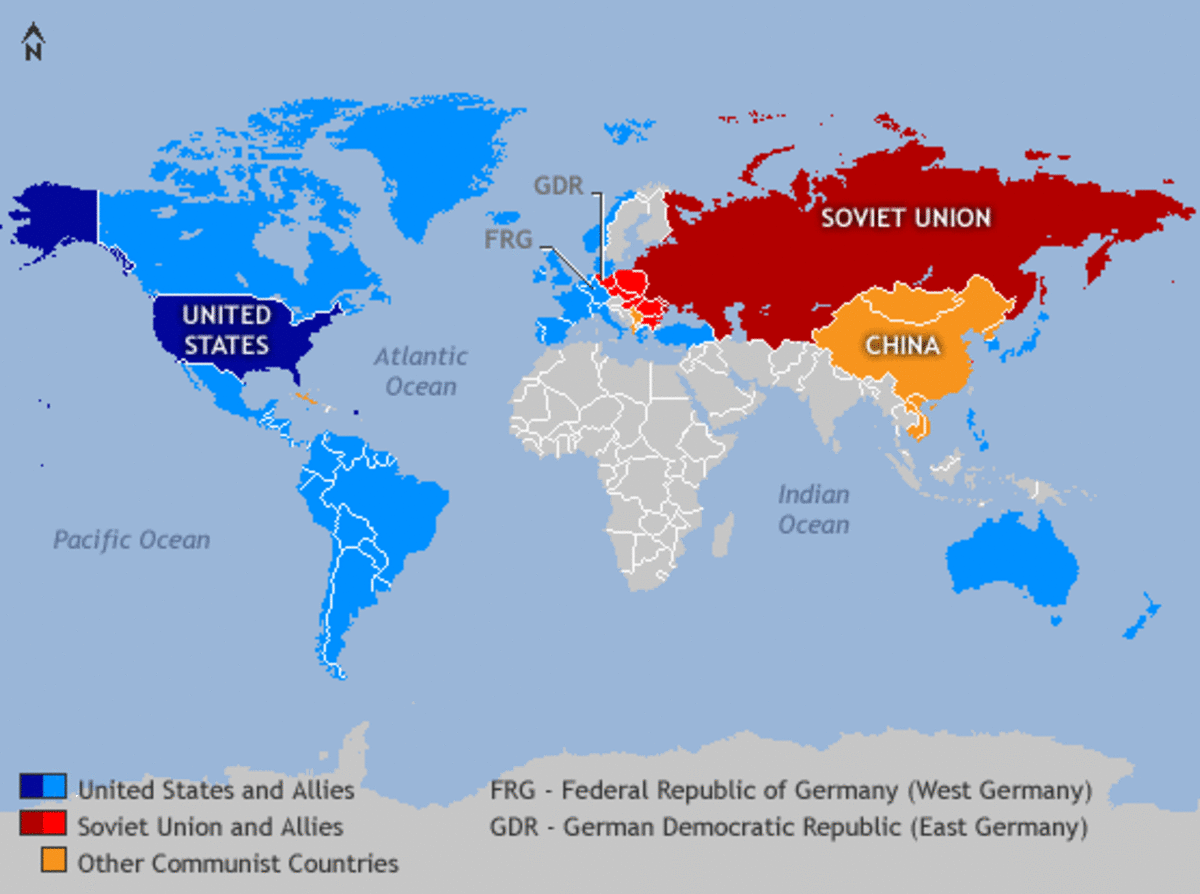It is Winner Take All in America
The United States’ people have been sold a myth that has informed national and state politics for decades: a rising tide lifts all boats. The idea that when GDP rises, everyone does well, has been entirely discredited during the recent “Great Recession”. “On GDP growth, America has outperformed Europe and Japan. Unemployment, however, tells a very different tale. America's jobless rate hit 6.1% in August, up from 4.7% a year earlier, and within spitting distance of its peak of 6.3% during the previous recession after the dotcom bust.” (link)
Certainly, the well off have a much greater capacity to bounce back from hard times given their overwhelming advantage in resources and position in society. In fact, “…whereas the Depression kicked off a long era of even income growth the rich have done much better this time round.” (link) Thomas Piketty’s recent study of income inequality reveals that the top 1% have enjoyed a 31% real income increase while the bottom 99% have had income growth of less than 1% during the recent recession. Moreover, 95% of the increase in income has been captured by the top 1% since 2009 whereas between 1933 and 36 they only received 28% of the wealth increase. (ibid)
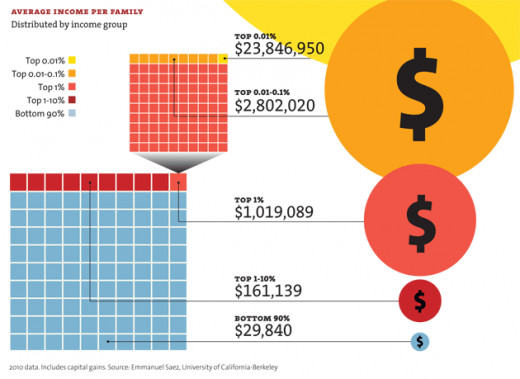
In 2008, the economy went through the mortgage banking crisis. The companies responsible for the banking crisis are doing well while millions lost their homes, savings, and wealth. In fact, the government used our tax dollars to bail out the banks that had been responsible for the mortgage crisis, failed hedge funds and lost pensions.
Clearly, the winners, especially in the latest economic downturn, have been bankers, Wall Street and wealthy investors, “…the rich have remained whole, thank you very much. Wall Street tycoons were bailed out. The stock market has recovered with the Dow now over 11,000 so all is well with the investor class. Of course the big corporations, having moved their labor operations to 3rd world countries” are doing well. The poor are expanding and the middle classes are being hit hard by this extended recession. They are the losers.
While the media might mention unemployment, it is corporate minded in its economic reporting. According to them and many economists, the country only needs higher productivity, more investment, more innovation in business, more education. Certainly, higher productivity means more profit for companies, but since the 1980s, wages haven't kept up with inflation.
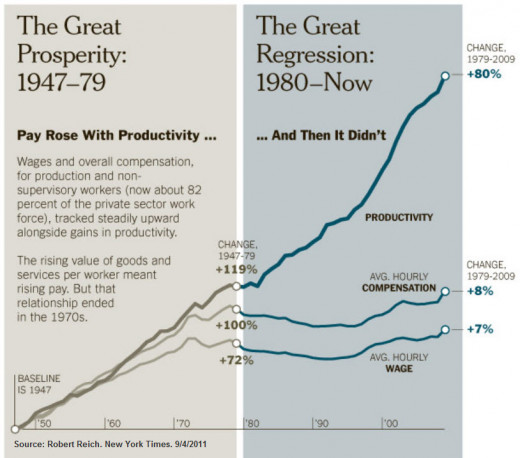
The main stream media focuses on macroeconomic reporting of statistics and an old economy while it is clear that old strategies are failing. What is not suggested is investment in jobs, a change in the tax structure or a rethinking of free market economics. Even though every 10-20 years out capitalist system yields a recession, the fundamentals of our economic system remain unchallenged in the mainstream media or in Congress.
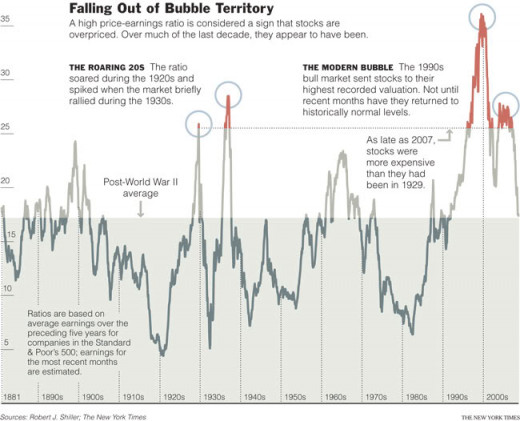
Clearly, there is money and attention to be gained by covering the accumulation of wealth in the Stock Market, though few of us own large amounts of stock.
An Internet search gave me these results:
Stock Market: 835,000,000 hits. Poverty: 34,500,000 hits. Unemployment: 30,500,000 hits. Homelessness: 4,890,000 Wealth gap: 52, 100,000 (not bad, but still 1/16th of the coverage the Stock Market receives)
And when I did a news search:
Stock Market: 174,000,000 Homelessness 37,000. Poverty: 201,000 Unemployment: 1,660,000 Wealth Gap: 18,000
Everyday in the morning and afternoon, stock reports fill the airwaves. There are whole networks dedicated to financial news that pertains to wealth. Why not a daily “unemployment report” or “homelessness index”? First, that would be pointing out the failings of capitalism on a daily basis. Also, that would focus people’s attention on the wealth gap. Moreover, it could be a used as a tool for organizing the masses. We can’t have bad news reported if it interferes with plutocracy and wealth accumulation at the top.
A winner take all economic/political system promotes a manufactured conflict between supposedly harmful socialism and patriotic capitalism. The corporate news outlets love these artificially constructed polar opposites. It’s cheap to cover and easy to sell stories about the stock market and promote the idea of instant wealth. Economic cooperation or stories that question outrageous wealth in the hands of the few while millions of people are homeless in the United States are played down and ignored, for they question the humanity and efficiency of capitalism.
However, the media likes stories about economic winners, the elite, the exceptional and the rags to riches, Horatio Alger tales. If you didn’t have to read his pablum in school: “…Horatio Alger's novellas with their "rags to riches" tales were propagandizing working people with the myth that anybody in America could become rich if they just worked hard enough.”
The fact is, 4 out of 5 Americans live in or near poverty. However, the media cover the Ukraine, Benghazi, the missing Malaysian plane and celebrities without hesitation. But they can’t cover the increase in poverty in the United States, a story that effects us all.
And they certainly won’t touch, or seldom discuss, how our economic policies and favoritism towards the wealthy has increased poverty, “As a direct result of existing financial policies, the world’s one hundred richest people grew to be $241 billion richer in 2012…Wage inequality and unemployment have both skyrocketed, making the economy increasingly unstable with monumental amounts of debt.” Clearly, the economic winners are preying on the losers, the poor.
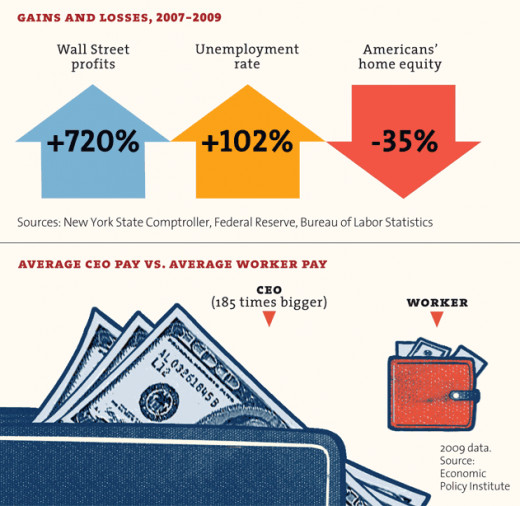
George Monbiot writes about how, “The policies which made the global monarchs so rich are the policies squeezing everyone else.” Meanwhile, the policies passed by Congress that made billionaires even wealthier have coincided with increased wealth in Congress, “Members of the House and Senate have a collective net worth of $2.04 billion, up from $1.65 billion in 2008.”
(ibid)
There is a myth that conservative news outlets like Fox promote, and all other corporate owned outlets fail to refute, that regulation kills jobs. It doesn’t.
What regulation does is protect workers, protects water, protects land, keeps heating and electricity billx low; regulations protect the people of the United States and our commons. In Texas, deregulation of the electrical market has cost consumers $11 billion dollars. So much for deregulation reducing prices. But deregulation has increased profits for electric companies, and that's what matters to politicians who receive money from energy companies for their campaigns.
Democrats and Republics benefit from an economic system that favors the 1%; moreover, they will be elected no matter how the economy does. At times, depending on who the public blames for the latest economic downturn, the parties may swap power. However, the two corporate sponsored parties have no competition. So one or the other two main parties remain in control of the government even when the poor and middle classes lose in an economic downturn.
As long as our political system is based on winner take all and not a democracy of the people, there will be economic winners and losers instead of an economy that benefits everyone.
Peace,
Tex Shelters


